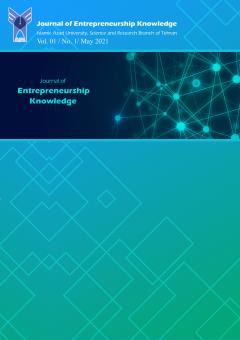Investigating the status of entrepreneurial business development components affecting the governance model
Subject Areas : EntrepreneurshipAbolfazl Ansari 1 * , Freydoon RahnamaRodpashti 2 , Gholamreza Memarzadeh, Tehran 3 , Fatemeh Hamidi Far 4
1 - Ph.D. student, Department of Management, UAE Branch, Islamic Azad University, Dubai, United Arab Emirates.
2 - 2. Associate Professor, Business Management Department, Tehran Science and Research Unit, Islamic Azad University, Tehran, Iran. (Author)
3 - 3. دانشیار، گروه مدیریت دولتی، واحد علوم و تحقیقات تهران، دانشگاه آزاد اسلامی، تهران، ایران.
4 - 4. Assistant Professor, Department of Educational Management, Central Tehran Branch, Islamic Azad University, Tehran, Iran.
Keywords: Keywords: governance, business development, entrepreneurial business.,
Abstract :
The aim of the current research was to investigate the status of entrepreneurial business development components affecting the governance model. The research method was the structural equation model method using a quantitative method, and the research population consisted of all managers of government centers and the private sector of large entrepreneurs in 1400, 292 people were selected using Cochran's formula. The research tool was a researcher-made questionnaire. The analysis of the collected data was done in two descriptive and inferential methods using SPSS 16 and Smart PLS software. The results showed that the current situation and the desired situation are not at the same level and have differences, thus it was determined that the gap between the current and desired situation should be reduced.The aim of the current research was to investigate the status of entrepreneurial business development components affecting the governance model. The research method was the structural equation model method using a quantitative method, and the research population consisted of all managers of government centers and the private sector of large entrepreneurs in 1400, 292 people were selected using Cochran's formula. The research tool was a researcher-made questionnaire. The analysis of the collected data was done in two descriptive and inferential methods using SPSS 16 and Smart PLS software. The results showed that the current situation and the desired situation are not at the same level and have differences, thus it was determined that the gap between the current and desired situation should be reduced.

